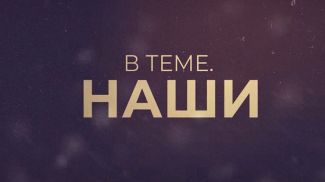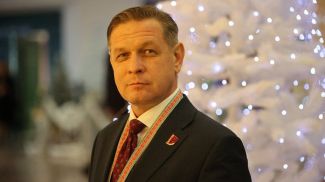MINSK, 15 December (BelTA) - Belarus and Russia have common approaches to education, Russia's Minister of Science and Higher Education Valery Falkov told the media during a joint meeting of the boards of the Education Ministry of Belarus, the State Committee on Science and Technology of Belarus, the Ministry of Education and the Ministry of Science and Higher Education of Russia on 15 December, BelTA has learned.
“We have an absolutely common understanding of the education sector. Yesterday I visited the Belarusian National Technical University and the Polytechnic plant. The priority of one of the leading Belarusian universities is the innovative component, everything that has to do with transmitting ideas, turning them into technologies, commercialization, and bringing them to the market. In fact, Russian universities set the same tasks for themselves. Simply put, education is not just a value in itself and an end in itself. Universities should make a significant contribution to the development of the economy, and Belarusian and Russian universities have the same understanding about it. We talked a lot about this yesterday at the session of the forum of the Association of Belarusian and Russian Universities,” said Valery Falkov.
According to him, it is important to keep all these common features to create opportunities for academic mobility of students and teachers, for joint implementation of projects in the interests of the two countries. “If we take science, a number of projects, Russian scientists are interested to come here to study unique historical and architectural monuments, conduct archaeological excavations. If we take Russia, it can provide unique opportunities for marine expeditions, research in nuclear physics, which students, young scientists, postgraduates and teachers from leading Belarusian universities are interested in. Therefore, we have to work step by step, taking into account the interests of both the countries,” the Russian minister said.
Valery Falkov emphasized that the agenda for discussions between the relevant agencies was packed. These were the issues concerning the education of Russian students in Belarus and Belarusian students in Russia. The matter pertains to creating additional conditions and lifting various restrictions. “Those who want to enter Belarusian universities today, must sit centralized tests. Ideally, the centralized testing points should be as close as possible to the location of future students. In turn, those who want to enter Russian universities, must sit the Unified State Exam. The same holds here for the United State Exam points. We are discussing on a parity basis the possibility of removing restrictions here. Secondly, support for students was discussed at the Belarusian-Russian Youth Forum on joint projects related to patriotism and history. Volunteer projects arouse great interest. The restrictions related to the coronavirus will end sooner or later, and we should give students, young people in general, the opportunity to implement joint projects both in Belarus and Russia,” he added.
Photos by Andrei Pokumeiko













